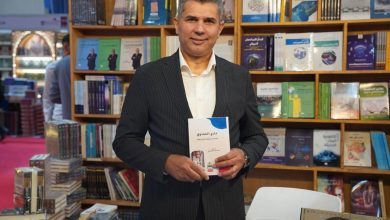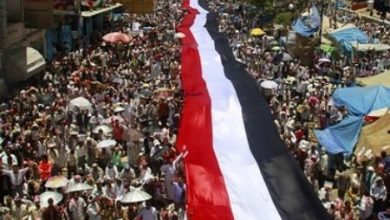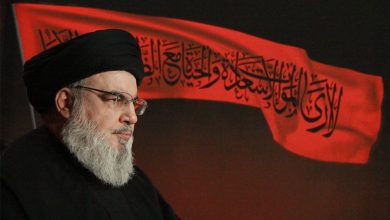The revolution is for the people, not for the sect.

 Mujahid al-Suraymi — Sana’a:
Mujahid al-Suraymi — Sana’a:
The revolution of September 21 was never a sectarian, regional, or tribal-ethnic movement, as mercenaries and traitors attempt to label it; rather, it represents the clear expression of the popularity of the people and the patriotism of the nation.
If there have been appointments tainted by regionalism, tribalism, or sectarianism, they are rejected, condemned, and despised by the revolution and its project—manifesting as a contagious corruption that affected some officials from the fallen previous regime. The revolution, however, remains loyal to its purpose and mission and exists solely for the people, from them and toward them. This is not mere rhetoric but a truth consistently emphasized by the leader of the revolution in all his guidance and advice.
In late 2016, I heard the leader of the revolution, Abu Jubrail—may God assist him—rebuke those working in the path of God, responsible for building and managing the state and advancing the individual and society intellectually, educationally, politically, economically, and otherwise: “O Ansar Allah, where have you gone with the obligation of ‘let there be a community from among you’?” This was in the context of urging officials across all departments, sectors, agencies, institutions, and bodies to attract and activate all competent, free, and honorable national minds and expertise—far from narrow interests, limited circles, borders, divisions, and sectarian, regional, or political classifications. This project is divine, intended for all people, and to ensure its impact and results reach every home, village, town, city, and province, they must be involved in shouldering responsibility for the practical movement in building and civilizational advancement, reflecting its deep and clear concepts and broad horizons in lived experience. All this stems from servitude to God, which entails liberation from all obstacles and false idols, and purification from tribalism, grudges, and factions, enabling society to achieve spiritual unity and material and moral integration at both individual and communal levels.
Despite these bright principles, some individuals have fallen, changed their character, abandoned all values and principles, and wasted opportunities. Their outward appearances never reflected their inner selves, and their motivations were not divine. Consequently, we have seen certain writers, politicians, and intellectuals, who started well—some gaining prominence and positions in the fields of work—but as much as they became famous, this did not prevent their deviation and fall, driven by moral and ethical decay. What, then, is the reason behind their change in stance and divergence in thought?
It is, undoubtedly, a lack of cultural and intellectual foundation. These individuals took leadership roles in politics, military affairs, or other fields without first entering through the door of thought and culture, which is essential and urgent. Through this foundation, we can shape the active personalities in revolutionary and constructive fields on intellectual, practical, and theoretical bases. This ensures that the concepts presented reach emotional depth, grow within the individuals, and are reflected in their behaviors through real-life experience and conscious, deep thinking. Work then proceeds on the path of rectitude rather than wandering in confusion, subject to winds as sand and fallen leaves are blown, for any work not preceded by educational and cultural grounding is prone to deviation, improvisation, and failure.
In conclusion, we must understand that the field of work for God, trade with Him, joining His supporters, and mobilizing in His path—if one does not dedicate everything and holds back in the places, situations, and circumstances where one could contribute benefit to the people—then one will find themselves unable to contribute effectively in later stages of the project and revolution. As circumstances change and challenges and risks expand, they will be like a merchant with an outdated product, surpassed by time, with people no longer in need of it, having access to what is better, more useful, and more beneficial.







